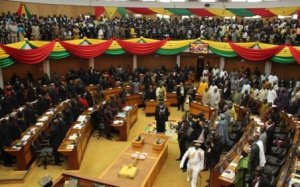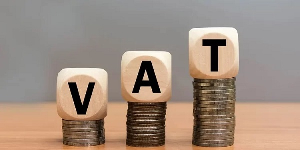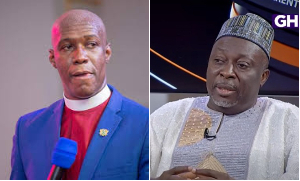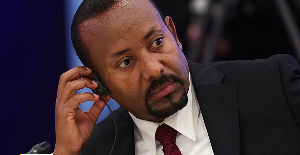Participants at the Institute of Economic Affairs' (IEA) nationwide public consultation on the winner takes all system of governance has urged government to abolish the system.
This was after the IEA Winner-Takes-All Advisory Committee held a public forum in Kumasi on the theme: “Rethinking Ghana’s Winner-Takes-All system”.
Alhaji Musah Asoma, President of the Council of Zongo Chiefs, disclosed at the forum that the winner takes all system of governance has resulted in the creation of tension, especially by members of the ruling National Democratic Congress (NDC) and main opposition New Patriotic Party (NPP).
He said because of the practice of the system, political parties tried to employ all illegal means to win political power, which in turn delays development.
Alhaji Asoma, therefore, called on government to abolish the winner takes all system and adopt a more collaborative one which would pave the way for opposition parties to also serve the country.
Madam Mary Boakye, a participant at the forum, said the recent boycott of the National Economic Forum at Senchi by leading members of the NPP was an indication that the winner takes all system of government is having a negative toll on Ghana’s progress.
She said the system always pushed the opposition parties to keep their good ideas until they also assume office, and it never helps the progress of a country.
“I will therefore appeal to government to consider abolishing the winner takes all system especially as the constitutional review commission has not completed its work and is in the review process,” she said.
Generally, the participants, which include members of the various political parties, security personnel, public and civil servants all agreed to the abolishment of the winner takes all system of governance.
Dr Samuel Sarpong, the Ashanti Regional Minister, who commended the IEA for organising the forum, said the winner takes all system of governance had eaten deep into the political discourse of the country, leading to politicisation of religion.
He said there is a good will among Ghanaians for more inclusiveness in the governance of the country and called for more dialogue on the issue.
Dr Sarpong said harnessing ideas within and outside political parties was important for the development of the country and urged Ghanaians to build political bridges and tolerate one another.
Dr Ransford Gyampo, a research fellow at the IEA, said the eleven-member Winner Takes All Advisory Committee, which was under the Chairmanship of Archbishop Charles Palmer-Buckle, was formed as part of the IEA’s commitment to consolidate Ghana’s democracy.
He said the Committee would re-examine the practice of the winner-takes-all politics, oversee the conduct of a nationwide public consultation and propose recommendations for reform with the hope that these may be fed into the nation’s on-going constitution review process.
Justice Emile Short, a member of the IEA-WTA Advisory Committee, said factors such as the power of the executive president, initiation of bills in parliament, governance at the district level, powers of parliament and the electoral formula, all contribute to promote the winners-takes-all system.
He, therefore, proposed a proportional representation in Parliament and adoption of a power sharing system with respect to appointments, among others.
Politics of Thursday, 26 June 2014
Source: GNA













